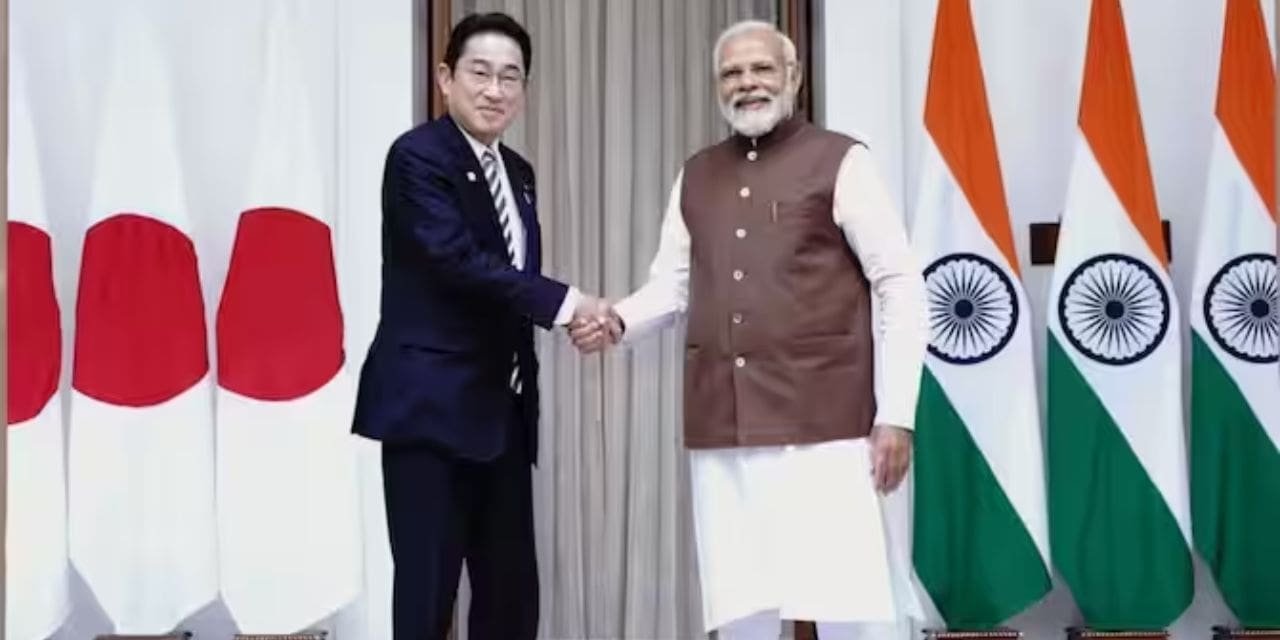Fumio Kishida pledged to strengthen their bilateral relationship, believing that doing so would benefit both nations in various ways and be essential for a peaceful, stable, and prosperous Indo-Pacific. This morning, the Japanese prime minister began a nearly 27-hour visit to Delhi amidst the geopolitical unrest caused by the conflict in Ukraine and growing worries about China’s assertive behaviour in the Indo-Pacific.
In his media statement, Modi made reference to India’s G20 and Japan’s G7 leadership, saying it is the finest time to collaborate on both sides’ agendas for the sake of the world. Modi claimed to have given Prime Minister Kishida a thorough briefing on the G20 priorities for India.
Throughout his stay When Kishida travelled to India in March of last year, he declared a five trillion yen (Rs 3,20,000 crore) investment goal for India over the following five years. In 2000, the relationship between India and Japan was upgraded to “Global Partnership,” then to “Strategic and Global Partnership,” and finally to “Special Strategic and Global Partnership” in 2014.
Since 2006, there have been yearly summits between the leaders of the two nations. Japan and India have a “2+2” foreign and defence ministers dialogue every year and are very close allies. According to the prime minister, the Indo-Japanese Special Strategic and Global Partnership is crucial for the Indo-Pacific region and is built on democratic ideals and respect for international law.
Modi claimed that both sides examined the development of bilateral ties, particularly in the fields of defence, digital technology, trade and investment, and health, among others. According to him, the need of dependable supply chains for semi-conductors and other crucial technologies was also covered by both parties.
In his remarks, Kishida stated that Tokyo’s economic connections with New Delhi are expanding quickly and will not only boost India’s continued development but also present major business potential for Japan.

